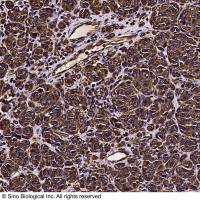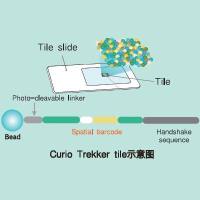Epitope Mapping Antibody-Antigen Complexes by Nuclear Magnetic Resonance Spectroscopy
互联网
723
NMR spectroscopy has been used to study antibody complexes with antigenic peptides. A crucial parameter in NMR studies of large biological complexes is the rate of exchange of a ligand between its free and bound states. In cases where the peptide off-rate is fast (faster than 10 s−1 ) relative to the decay of magnetic excitation (longitudinal relaxation time) and to the inverse of the mixing period (the time during which magnetization transfer takes place) used in NOESundefined experiments, transferred NOE (TRNOE) techniques, including 2D TRNOE difference spectroscopy (1 ) and the T1ρ -filtered TRNOE method (2 ), are very suitable to study antibody-antigen interactions and intramolecular interactions within the bound peptide (3 ). Alternatively, in the case of tight binding and slow exchange, isotope filtering methods can be applied (4 ). Tsang et al. (5 ) used this technique to elucidate amide proton interactions in an antibody-bound peptide complex and to characterize the mobility of these protons on binding.









